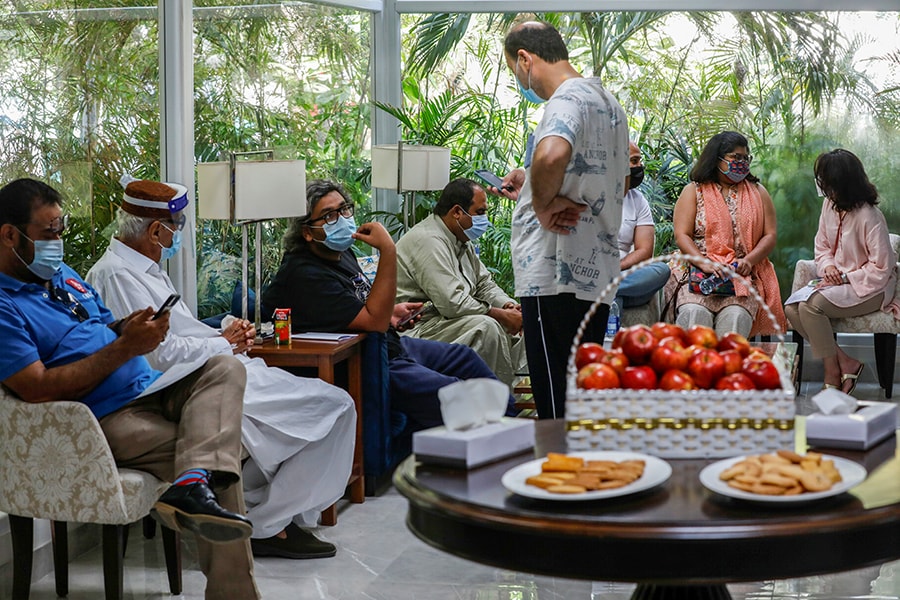
Pakistan's private vaccine sales highlight the rich-poor divide
Critics say the decision will deepen the divisions within the country, where a large section of the society lives under the poverty line

Residents sit in a waiting area after getting a commercial dose of Russia's Sputnik V coronavirus disease (Covid-19) vaccine, at a private hospital in Karachi, Pakistan April 4, 2021. REUTERS/Akhtar Soomro
ISLAMABAD, Pakistan — The coronavirus was ripping through Pakistan, and Muhammad Nasir Chaudhry was worried. Long lines and tight supplies plagued the government’s free vaccine campaign. Newspapers were filled with reports of well-connected people jumping the line for a free dose.
Then Chaudhry, a 35-year-old government consultant, discovered he could pay to leapfrog the long lines himself. He registered to take two doses of the Russian-made Sputnik V vaccine for about $80 from a private hospital. That’s a lot of money in a country where the average worker makes about $110 per month, but Chaudhry was ready to make the commitment.
Critics have assailed such private sales in Pakistan and around the world, saying that they make inoculations available only to the wealthy. But in Pakistan, like elsewhere, tight supplies have stymied those efforts. The private hospitals are out of supplies, and Chaudhry still hasn’t been vaccinated.
“I am willing to pay double the price for the vaccine, but I don’t want to wait on and on,” Chaudhry said.
©2019 New York Times News Service




